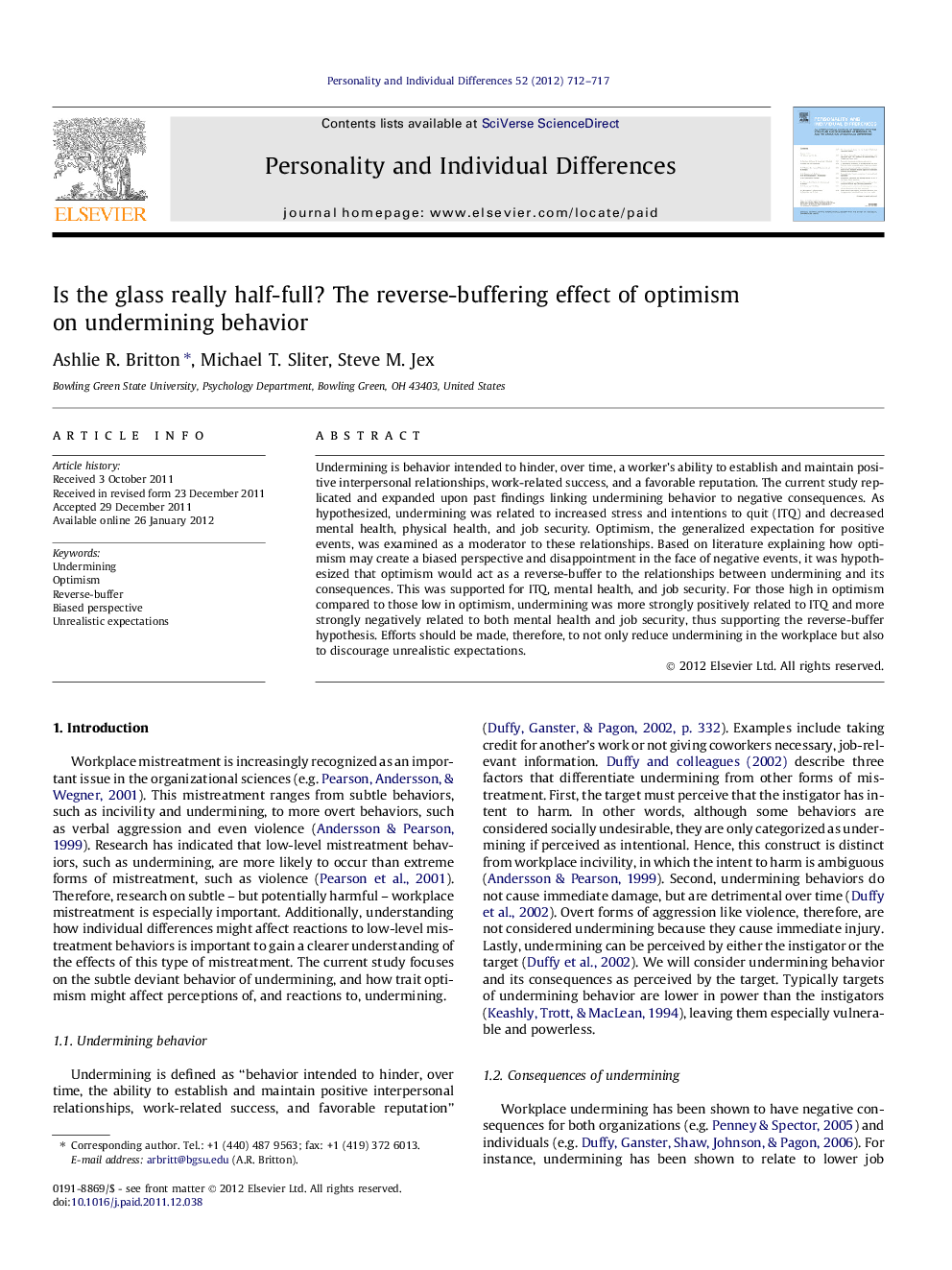| Article ID | Journal | Published Year | Pages | File Type |
|---|---|---|---|---|
| 891095 | Personality and Individual Differences | 2012 | 6 Pages |
Undermining is behavior intended to hinder, over time, a worker’s ability to establish and maintain positive interpersonal relationships, work-related success, and a favorable reputation. The current study replicated and expanded upon past findings linking undermining behavior to negative consequences. As hypothesized, undermining was related to increased stress and intentions to quit (ITQ) and decreased mental health, physical health, and job security. Optimism, the generalized expectation for positive events, was examined as a moderator to these relationships. Based on literature explaining how optimism may create a biased perspective and disappointment in the face of negative events, it was hypothesized that optimism would act as a reverse-buffer to the relationships between undermining and its consequences. This was supported for ITQ, mental health, and job security. For those high in optimism compared to those low in optimism, undermining was more strongly positively related to ITQ and more strongly negatively related to both mental health and job security, thus supporting the reverse-buffer hypothesis. Efforts should be made, therefore, to not only reduce undermining in the workplace but also to discourage unrealistic expectations.
► In this study we examine workplace undermining and its negative consequences. ► We also investigate optimism acting as a reverse-buffer to undermining. ► Workplace undermining was associated with negative consequences for the target. ► Optimists had more negative reactions to undermining than those low in optimism. ► We discuss the value of reducing undermining and encouraging realistic expectations.
